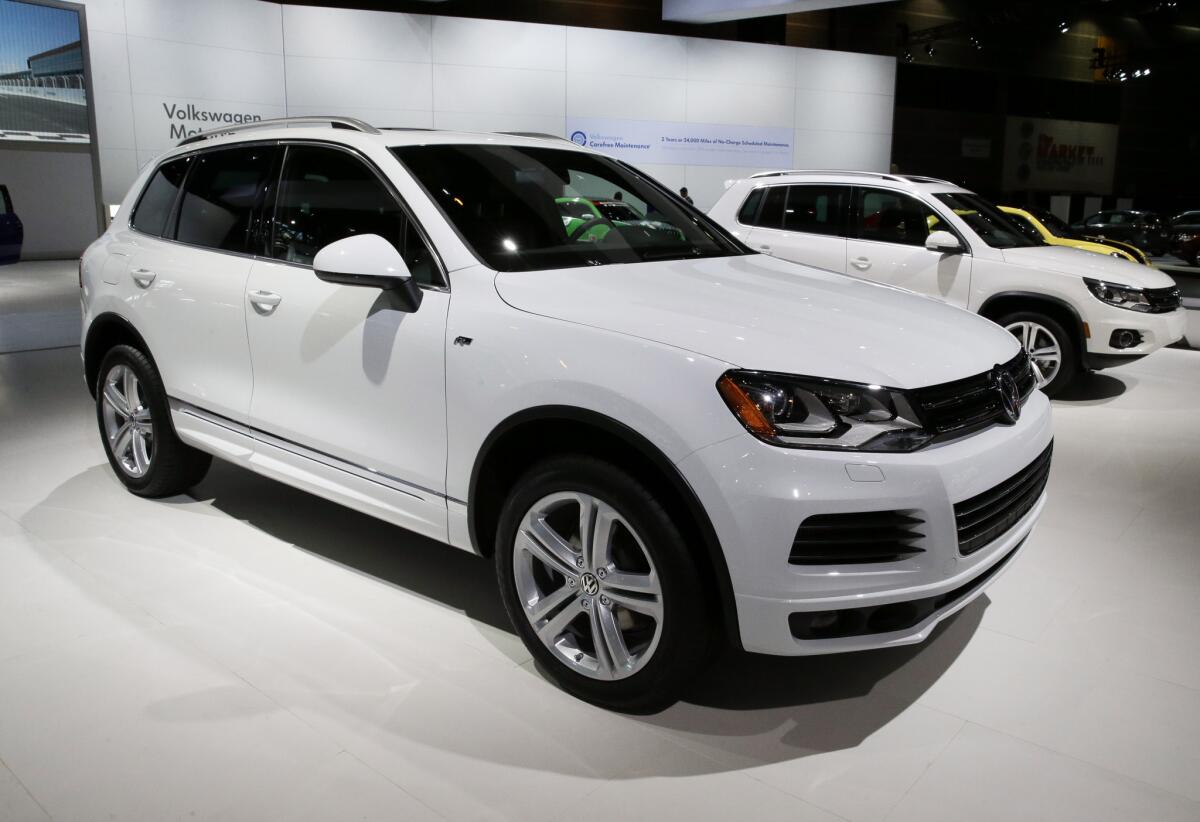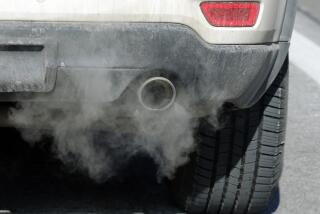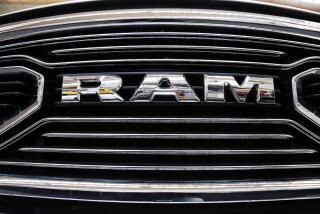VW to EPA: We didn’t do it -- this time

The Environmental Protection Agency has charged Volkswagen Group with a second round of emissions-evading software tricks, involving Porche, Audi and VW vehicles, including this 2014 Volkswagen Touareg TDI.
- Share via
Responding to new Environmental Protection Agency charges, Volkswagen is denying it installed software to cheat U.S. emissions tests in six-cylinder diesels from VW, Porsche and Audi.
The EPA got it wrong this time, said officials from all three brands.
The denials followed an EPA announcement Monday that VW -- which had already admitted using “defeat devices” in as many as 11 million VW and Audi vehicles with four-cylinder engines -- had installed similar deceitful software in 3.0-liter engines used in VW, Porsche and Audi vehicles.
SIGN UP for the free California Inc. business newsletter >>
But VW told the EPA that no illegal evasion software exists in the 3.0-liter engines.
“Volkswagen AG wishes to emphasize that no software has been installed in the 3-liter V6 diesel power units to alter emissions characteristics in a forbidden manner,” the company said in a statement, adding that “Volkswagen will cooperate fully with the EPA clarify this matter in its entirety.”
The distinction between the two engines is not only one of size. The 2.0-liter four-cylinder was engineered and manufactured by VW, at its Wolfsburg, Germany, home base. The 3.0-liter six-cylinder is the work of Audi, the VW Group subsidiary operating out of Ingolstadt, Germany.
Those engines are used in the vehicles identified Monday by the EPA -- the 2014 VW Touareg, the 2015 Porsche Cayenne and the 2016 Audi A6 Quattro, A7 Quattro, A8, A8L and Q5. Other models and years, including more 2016 vehicles, may also be affected, the EPA said.
A VW Group officer, speaking anonymously because he was not authorized to speak on behalf of the company, said he believed the EPA has mistakenly assumed that discrepancies found in the testing of the 3.0-liter engines occurred due to a defeat device.
The EPA said in its report that VW had designed and installed software that would the enable the 3.0-liter diesel engine to run on “normal mode” and something called “temperature conditioning” – which EPA called the cheating mode.
The software was clever enough to detect when the vehicle’s emissions were being tested, then reverted to normal mode “exactly one second” after the software detected that EPA testing conditions had stopped, said Cynthia Giles, assistant administrator for the EPA’s Office for Enforcement and Compliance Assurance.
See the most-read stories this hour >>
In “temperature conditioning,” the vehicle tested below the EPA’s pollution limits. In “normal mode,” the vehicles spew up to nine times the legal limit of noxious gases.
The “temperature conditioning” is a legal and helpful system, Audi said, by which certain parts of the engine are warmed quickly to reduce pollutants during cold conditions -- as when the engine is started and operated in cold weather -- when emissions levels are typically highest.
“This is not the same thing as the defeat device named in the initial 2.0-liter diesel notice from EPA,” said Audi corporate communications manager Brad Stertz. “Our engineers need to find out what data the EPA came across, and what conditions they were discovered under.”
Porsche, also in a statement, said it was “surprised to learn this information,” especially the part about its popular Cayenne being included in the sweep.
“Until this notice, all of our information was that the Porsche Cayenne Diesel is fully compliant,” the company said.
Twitter: @misterfleming
ALSO:
Chipotle stock falls after E. coli cases cause restaurant closures
Supreme Court may limit class-action lawsuits against tech industry
L.A.’s ‘bank to the stars,’ City National Bank, now under Canadian ownership







